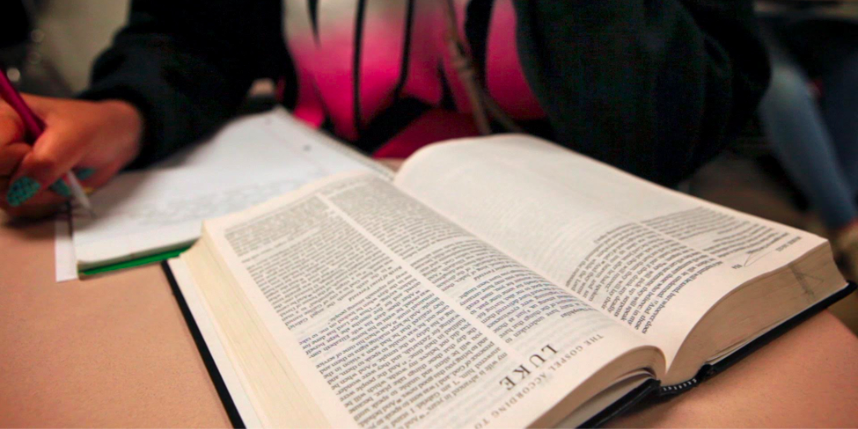BLOG: LOVING THE UNTOUCHABLES

My oldest son just finished building a fabulous chicken coop. In a smaller cage he is raising some younger chicks that will join the larger birds when ready. Recently, in an attempt to see if one of the younger birds could be assimilated into the bigger cage, my son gently placed one of the smaller birds into the big coop. I watched him position himself near this little one to observe this entry. What we witnessed was unreal!
Immediately, four of the large chickens surrounded the newcomer and locked their eyes on her in what appeared to be an “intimidation” stare. Then, after several long seconds, they proceeded to aggressively peck at her. My son, who was poised and ready to protect his little bird, quickly whisked her up into his arms, rescued her from the attack, and moved her to safety.
So what does this story have to do with Bible history? Sadly, we know there are students in our schools today who are figuratively “pecked at” by those who for whatever reason choose not to receive or welcome them. While there will always be varying levels of student aggression and isolation in our schools, Bible history teachers report that the values found in the Bible are helping to combat this as students learn to become more accepting of one another.
When taken to extremes, student aggression can bleed into bullying -- a behavior exhibited when a person uses their “power” to aggressively and repeatedly control or harm others. Bullying takes many forms and can be manifested by physical, verbal, relational (social), or cyber aggression (https://www.apa.org/pubs/journals/releases/spq-25-2-65.pdf).
In July 2016, the U.S. Department of Education released data from the National Center for Education Statistics. Five nationally representative surveys of students enrolled in grades 6-12 were conducted over a period of five years. Findings reported that 22% of students aged 12-18 experience bullying (http://nces.ed.gov/pubs2015/2015072.pdf). Looked at it differently, this is close to one fourth of all students in every classroom.
Many psychologists maintain that shame is most often what bullies are trying to hide. Stemming from their own insecurities, bullies give their shame away by denigrating others to likely avoid exposure of their own failures and shortcomings. The consequences of their actions, however, can have damaging and lasting effects on those upon whom they prey. Unlike my son’s little chick, for some students there is no safe place to which they can easily escape.
We have all heard the saying that hurting people often hurt other people, and sadly this is often true. However, whether students are bullied, bullying, rejecting, or the rejected, the reality is that many students in our schools today are hurting. Yet, how encouraging it is to know that through Bible history classes, students are learning more appropriate treatment toward others.
One of the Bible history teachers recently shared that studying part of Luke 5 has brought comfort to many hurting students. In this story, Jesus heals a leper -- one cruelly labeled an “untouchable”. Here Jesus reaches out to a person who has been rejected, cast out, abandoned by others, and lovingly heals him. As students unpack the narrative and engage in Socratic dialog about what rejection really means, teachers have observed student attitudes beginning to soften toward those with whom they differ. This teacher, who teaches over 500 Bible history students a year, said, “Many students resonate with this story because so many of them feel like modern-day lepers.” While teen years are just hard anyway, how tragic it is that any child should ever feel this way.
Yet, if we don’t want youth in our public schools to feel like modern-day lepers, and we want them to stop hurting and isolating one another, we need to equip them with a new perspective, give them hope, and teach them what it means to extend grace by being inclusive of others.
Your gracious gifts to this Bible history program are doing just that. You are making it possible for students to mine values from the Bible that are encouraging them to stop rejecting, bullying, and “pecking” at those who are different from them. Most importantly, through your generous provision of Bible history classes, students are learning from the example set by Jesus how to care for others and to lovingly reach out to the “untouchables”. Thank you.
© Public School Bible Study Committee
200 W. Martin Luther King Blvd., Suite 300 Chattanooga, TN 37402| (423) 648-0500
All Rights Reserved | Powered by LiftNXT
